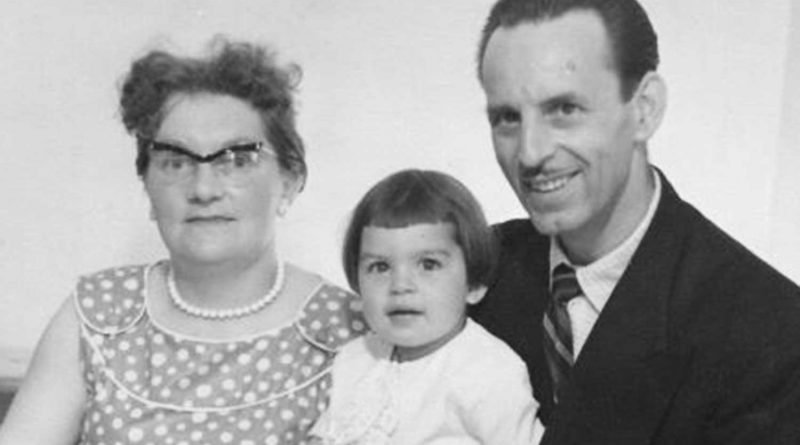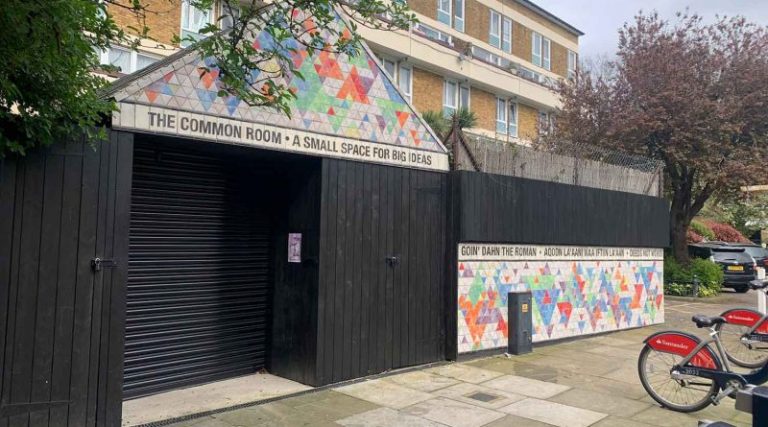Jean Fullerton: ‘The Queen of the East End’
The Queen of the East End turns from saga fiction to memoir, transporting readers to the gritty reality of Cockney London after the war.
‘There’s enough going on in the East End to keep any old sod busy for the rest of their lives,’ laughs Jean Fullerton, who’s been writing historical fiction set on the streets of East London for more than a decade.
Known by her readers as The Queen of the East End, Fullerton has published 26 fictional books set in Cockney London, including her most well known Ration Book series which imagines the experiences and challenges of one East London family during the war.
Fullerton denies coining the nickname herself. But after a pause, she adds: ‘Quite a few people write about the East End but there aren’t many that are actually bona fide Cockney … none that I can think of other than myself.’
Fusing imagined scenarios and real-life experiences from her upbringing in East London, Fullerton spends her days delving into old diaries and first hand historical accounts to inspire her work.
And for anyone fascinated in social history, you’d be hard pressed to find an area with more historic tales and fables than the East End. As Fullerton explains: ‘It’s the oldest suburb in London. Places like Hammersmith and Fulham were villages when East London was already thriving with industry.’
‘I can have everybody from Russian criminal gangs in the 1900s to royalty coming to slum it in the East End in my novels,’ she says.
But in her most recent book, A Child of the East End, she turns the magnifying glass inwards, drawing on her family history and childhood memories of growing up in Cockney London in the 1950s and 60s.
Fullerton’s family moved from Scotland and Ireland to find work in East London after the Irish potato famine in the mid-19th Century. As she explains: ‘The East End has always been a big melting pot of people … They come here with nothing but they make their mark and build their families and businesses, then they sort of become part of the scenery.’
Born on Watney Street in Wapping in 1954, Fullerton moved to Globe Road at the age of five and lived there with her family of four until she was eleven years old.
Now based in Bedford, Fullerton says her heart will always belong to the East End. She comes back often to check facts for her novels and walk around the streets to see what has changed.
As a child she remembers spending time on the Roman Road with her friends, shopping in Woolworth’s and eating pie and mash.
‘There used to be loads of pie and mash shops on the Roman Road,’ Fullerton recalls: ‘Now only the famous ones like G Kelly are still there, but I think they’re making a comeback.’
Attending St. John’s CE Primary School in Bethnal Green, Fullerton was diagnosed with dyslexia as a child, which they used to call ‘word blindness.’
‘I definitely didn’t always know I was going to be a writer,’ she confesses, it happened by chance when she was sent on a stress management course whilst working as an NHS district nurse in Whitechapel in the 1980s.
‘They told us to take up a hobby, play a sport, that kind of thing … so I just started writing,’ she says: ‘My first few attempts were stories set in the Medieval period, I’m a bit of a closet Medievalist!’ laughs Fullerton.
‘And then one day I came out of Whitechapel station and was standing outside of the old London Hospital which has been there since 1753, and it suddenly struck me that it would be a great setting for a story.’
Fascinated by social history, many of Fullerton’s novels tell wartime tales of ordinary East Enders through the eyes of female protagonists inspired by the women in her own family.
‘There’s something very heroic about our ancestors who might’ve raised dozens of children before we had antibiotics or the NHS, and when there wasn’t enough food to go around … for me, that’s just as heroic as fighting a battle in a foreign land,’ she says.
Having published almost 30 books and already planning her next series, it’s clear that Fullerton is driven by the same industrial spirit that runs through her family, perhaps a necessary prerequisite to starting out with nothing and making it in the East End.
As she explains: ‘Being a Cockney and actually coming from East London, we’ve got a reputation for being smart and sassy and not taking any nonsense … And I think that’s a commonality of lots of deprived working-class communities, be it a pit village or a mill town,’ says Fullerton.
‘Often you get plucky little Cockneys thrown into books, but I like to think I’m being authentic and am the real deal as it were because I was brought up in the area and I write about my own culture, my own East End culture.’
A Child of the East End was published by Corvus on 11 August 2022.
Jean Fullerton will discuss her new book with fellow historical novelist Kate Thompson at the Writeidea Festival this November. The pair will consider the craft of writing memoirs, their depictions of the East End, and the importance of documenting ordinary people’s lives.
If you enjoyed this article, read our piece about Jacky Hyams’ book on the Kray Twins.








